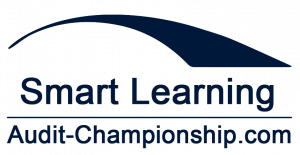Pre-Implementation Audit & Project Audit
– examination techniques for effective auditing with regard to project management, the business case, technical requirements as well as implementation –
Objective:
Shorter product lifecycles, new technical developments for enhancing process efficiency and effectiveness as well as heightened regulatory stipulations demand the implementation of continuous change processes on the part of companies. In addition, the prevailing corporate environment worldwide is characterized by economizing measures and streamlining concepts that are driven by an increasingly scale-oriented pressure regarding costs and competition. In order to fulfill these dynamic requirements, companies must utilize temporary organizational forms such as mixed teams, cooperative arrangements or project groups. An active role in the joint configuration of this fast-paced evolution of the corporate world is unimaginable without the systematic implementation of project-management methods.
A pre-implementation audit – or a project-accompanying audit – takes place parallel to the development and implementation phase of significant new products, business processes and systems. Early involvement of the audit function ensures that important internal controls are implemented and that legal and supervisory requirements are taken into consideration during the initial development of a new concept. Within the framework of a so-called ex-ante audit, potential procedural errors or points of economic vulnerability already can be identified and eliminated in advance.
This consulting function of the audit procedure often leads to new insights and, at the same time, to substantial cost savings. In contrast, various kinds of studies confirm that correction and post-improvement expenses exceed the cost of initiated preventive measures. Due-diligence audits conducted by skilled internal-audit teams prior to the new acquisition of other companies also are categorized as project-accompanying audits.
ARC provides clients support and raises their awareness of such aspects, enabling them to assess projects with regarding compliance with legal, regulatory and company-related directives. In this respect, an examination in accordance with “Auditing Standard No. 4 – Standard for Auditing Projects” issued by the German Institute for Internal Auditing (Deutsches Institut für Interne Revision = DIIR) is highly recommended. This particular standard deals with project organization, framework conditions, strategic goals, plans, controls and project-management processes as well as the project team’s results. The yardstick for risk-oriented evaluation is provided by company-internal directives as well as legal regulations. However, relevant parameters also are provided in best-practice standards regarding project-management frameworks such as those found in the Project Management Institute’s “Guide to the Project Management Body of Knowledge” (PMBOK® Guide), PRINCE2® (an acronym for PRojects IN Controlled Environments) or the “International Competence Baseline” (ICB) established by the International Project Management Association (IPMA).
Topics:
- Pre-implementation auditing and various forms of the ex-ante examination
- Definition of terms and differences between ex-post and ex-ante audits
- Challenges for the internal audit function related to ex-ante examinations
- Risk-oriented audits of projects and business cases regarding project-accompanying audits
- Planning of time and resources, demarcation of a project’s duration
- Independence and objectivity
- Inadmissible consultancy vs. authorized consultation
- Coordination and incorporation of an audit into projects (rights and responsibilities)
- Stages of an ex-ante audit: preparation, performance, reporting and follow-up
- Audit objectives, examination program, planning of capacities
- Procedures, documentation of specific audit activities, hazards
- Documentation and reporting with regard to project-accompanying audits
- Principles and perspectives regarding escalation in connection with risk-endangered projects
- Detailed implementation options for the client’s practical audit environment
- Support in conducting project audits
Training Team
Audit-Championship is a university spin-off. We focus on networking between science and practice. Audit-Championship provides thought leadership and innovative methods to support its customers across all industries in digital transformation. We support audit departments globally as well as national Internal Audit associations with yearly 1.800+ training days and transformation services along an internal audit knowledge value chain.
Inhouse Training on demand
Conditions and Price
Get in touch with us, we look forward to developing a great training event and didactical concept for you and your internal audit team.
Didactics | Methodology
We train you and your team on-site, or we can train you online worldwide in the form of a Virtual Training Series: Interactive lecture, discussion, practical example, case studies, reflection.
ENJOY THE TRAINING
After entering your contact data, we are happy to support you in a timely manner and will be in touch with you within the next 48 hours.

